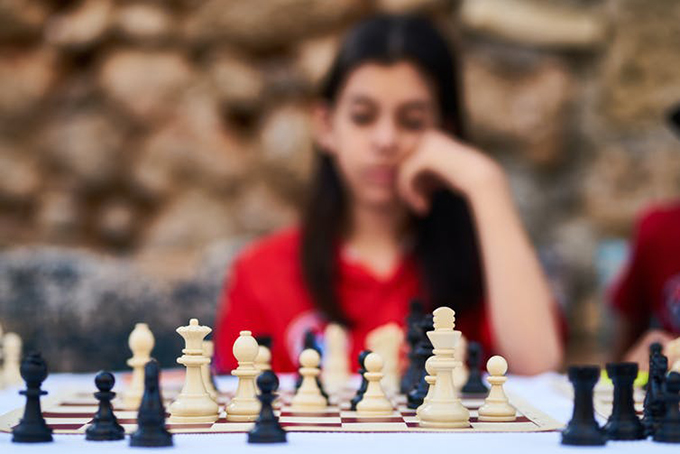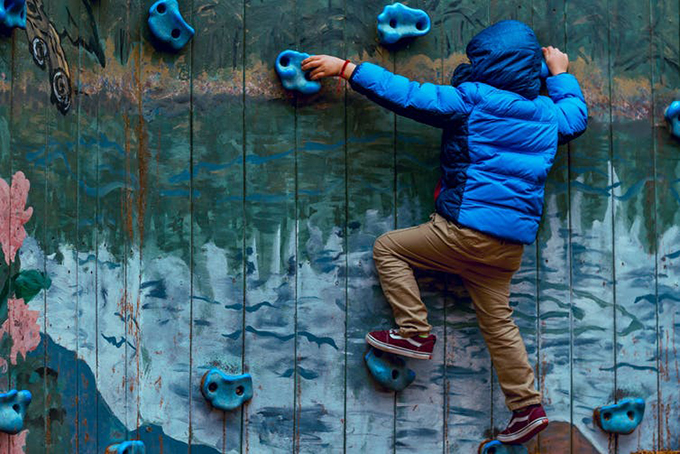 The years 2020 and 2021 will have been, for schoolchildren as well as for students, years “heckled”, not to say “black”. The strong disturbances due to the pandemic have generated a lot of stress, caused psychological distress, and psychologically weakened a large number of children and young people.
Under these conditions, can parents cherish the hope of restoring their children’s self-confidence? And how should it go about it? Three great philosophers seem to us to provide valuable advice. Let’s listen to them.
The years 2020 and 2021 will have been, for schoolchildren as well as for students, years “heckled”, not to say “black”. The strong disturbances due to the pandemic have generated a lot of stress, caused psychological distress, and psychologically weakened a large number of children and young people.
Under these conditions, can parents cherish the hope of restoring their children’s self-confidence? And how should it go about it? Three great philosophers seem to us to provide valuable advice. Let’s listen to them.
Descartes’ advice: fight indecision
We generally retain of Descartes that he is the philosopher of systematic doubt . If he decides to reject “as absolutely false everything in which {he} could imagine the slightest doubt”, it is in order to find “something which was entirely unmistakable”. His whole endeavor is motivated by “the desire to learn to distinguish the true from the false, to see clearly in {his} actions, and to walk confidently in this life”. Now, if doubt is a necessity for philosophical reflection which, in its search for truth, must be able to uproot error, it is an obstacle for action, which “often does not suffer any delay”. It is in order not to remain unresolved in his actions while reason obliges him to be so in his judgments, that Descartes has endowed himself with a “morality by provision”. His second maxim, “be as firm and resolute in my actions as I can,” expresses a radical condemnation of irresolution.
You have to know how to make decisions, even if uncertainties persist. by Engin Akyurt from Pexels , CC BY
Kant’s advice: focus on sports activities
Kant is not only the author of the three great Critics (of Pure Reason, Practical Reason, and Judgment) that every student of philosophy must have read. He was interested in a great many subjects, including earthquakes, westerly winds, head diseases, bodily medicine, counterfeit books… and education! His Reflections on Education offer solid considerations on the educational enterprise. A great rule could be retained: education has the essential task of forging the will of children. But this has to be understood in two ways. The first is to resist whims: “the child will therefore have to meet resistance”. “Natural” resistance is not to give in. For parents and educators not to resist is a “big mistake”, because true freedom is the fruit of culture, of which discipline is a condition. But, specifies Kant, if “education must include constraint… it must not for all that become slavery”. The second way to forge will is to offer “auspicious opportunities” to exercise “mental faculties”, by combating “softening”. It starts with the cultivation of the body! Kant is a staunch supporter of serious physical and sports education. He advocates in particular the learning of swimming, and the practice of any exercise allowing to acquire “of the force, the skill, the speed, the safety”.“For example, you must be able to cross narrow footbridges, climb steep heights where you can see the void in front of you, walk on a wavering floor. If a man cannot do this, he is not quite what he could be ”.

Encountering resistance, and strengthening and hardening one’s body, are for Kant the two privileged paths of character formation. by MathDudels.com from Pexels , CC BY
“The character consists in the firmness of the determination with which one wants to do something and also in its actual execution … Because a man who proposes something to himself and who does not do it can no longer have confidence in himself”.We must help the one who has decided on an hour to get up to stick to it, because he does not end up “not having confidence in himself”. As Alain will say: “the programs are not a small thing” … when you follow them!
Alain’s advice: make people feel the joy that comes from overcoming difficulty
The advice that Alain gives us in his Comments on education is therefore in line with what Descartes and Kant suggest. For Alain too, educating children consists above all in “strengthening the will in them”. But the will is not something that is transmitted by teaching. And parents cannot want for their children. What can be done, then, to develop an “art of wanting” that is never lost? The solution is to “put their own learning into their hands”, which implies two conditions:- the first is to put them in a situation of activity, because “there is no progress for any schoolboy in the world, neither in what he hears, nor in what he sees, but only in what he sees. made ” ;
- the second is to put them face to face with real difficulties, because “the bait which suits man” is “the difficulty conquered”. We must not give them “the peeled nut”.